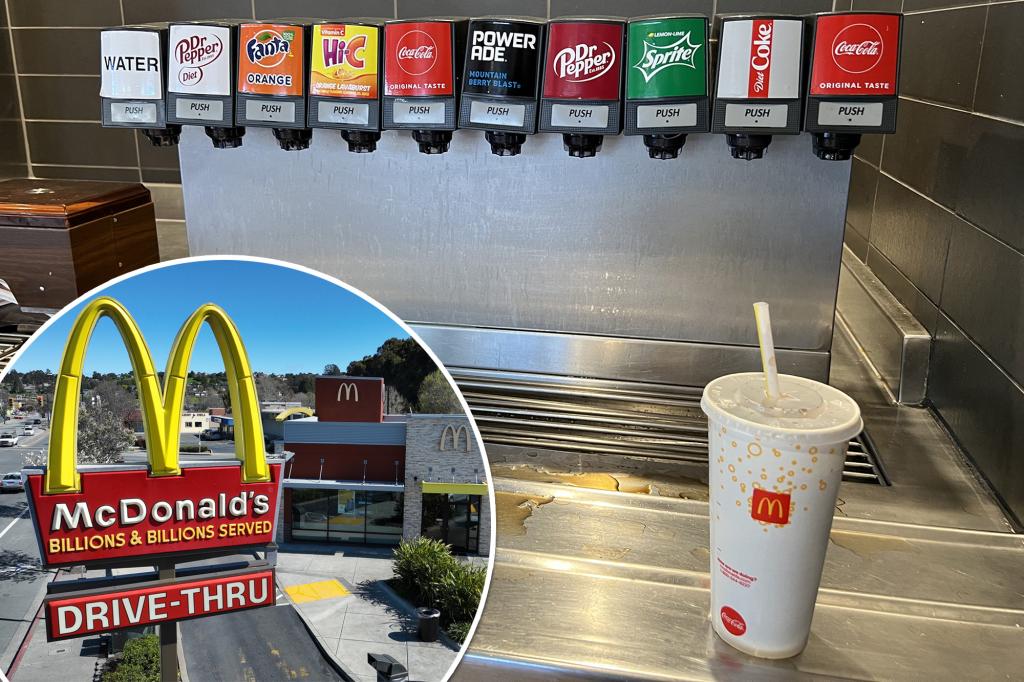Fast-food giant McDonald’s is facing backlash as they begin charging customers for refills, previously a standard free perk across fast-food chains nationwide. This change has left many customers feeling disappointed and questioning the future of fast-food prices and policies. The decision to charge for refills is not mandated by McDonald’s corporate but is instead left to the discretion of individual restaurant owners and operators. This move reflects a broader trend in the fast-food industry, where companies are looking for ways to cut costs and improve profit margins.
In addition to McDonald’s, other fast-food chains such as Panera Bread and grocery stores like Wegmans are also removing self-serve soda fountains. This trend is not limited to a single brand but is indicative of a larger shift towards reducing operating costs and streamlining operations. Some experts believe that the maintenance and cleaning required for self-serve soda machines are not worth the additional revenue generated from drink sales. By removing self-serve options, companies can save money on cleaning supplies and labor costs.
The move to eliminate free refills may also be driven by concerns over theft and increased operational efficiency. Mike Haracz, a former McDonald’s corporate chef, suggests that drink theft may have been a factor in the decision to charge for refills. Moreover, restaurants prefer customers to use the drive-thru for quicker service and turnover, as it is more cost-effective than serving dine-in customers. With the rise of drive-thru orders, the emphasis is on reducing costs and increasing efficiency, rather than providing free perks to dine-in customers.
The decline in dine-in volume has also contributed to the decision to charge for refills, as many customers now prefer the convenience of drive-thru or takeout options. This shift in consumer behavior has led to a reevaluation of the cost-benefit analysis of providing free refills in fast-food restaurants. While the cost of syrup for a refill is minimal, companies are always looking for ways to maximize profits and maintain a competitive edge in the market. Offering any size drink for a fixed price, such as $1, is a common strategy used to attract customers and increase sales.
Overall, the decision to charge for refills reflects a broader trend in the fast-food industry towards cost-cutting and operational efficiency. McDonald’s and other chains are constantly looking for ways to improve profit margins while balancing customer expectations and competitive pressures. While some customers may be disappointed by the elimination of free refills, it is ultimately a business decision aimed at maintaining profitability in a competitive market. As consumer preferences and behaviors continue to evolve, fast-food chains will need to adapt and innovate to remain relevant and competitive in the industry.


